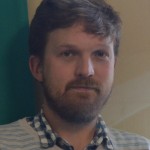Agents for Change 2015: Time to listen – when to speak up
Deborah Kirkham and Jessamy Bagenal, clinical fellows to The BMJ.
It’s less than three weeks to go until the 2015 Agents for Change conference on Saturday 24th October, co-hosted by NHS England, the BMJ, and the Faculty for Medical Leadership and Management (FMLM) (http://careersfair.bmj.com/registration/agents-for-change). This is an event for junior doctors and other healthcare professionals, planned and implemented by junior doctors. The conference title ‘Time to Listen. When to Speak Up’; describes listening to patients and colleagues, building resilience within teams, and knowing when and how to speak up, whether this is celebrating successes or raising concerns.
The conference themes are topical given the publication earlier this year of the ‘Freedom to Speak Up’ report, an independent review led by Sir Robert Francis into creating an open and honest reporting culture in the NHS. This review followed the ‘The Francis Report’ in 2013, where serious failures in care became part of the culture at Mid Staffordshire NHS Foundation Trust. Junior healthcare professionals are in a position to view organisations with fresh eyes and are perfectly placed to compare practice; highlighting areas of excellence and areas of improvement.
We have some big names speaking at the conference and running workshops throughout the day. Opening the conference is the Medical Director for NHS England, Professor Sir Bruce Keogh, a staunch supporter of junior doctors and the skills and insights they bring to the NHS. We also have lectures from Professor Wendy Reid, Director of Education and Quality at Health Education England, and James Titcombe OBE, who fought for answers after his baby son tragically died. His endeavours led to the establishment of the Kirkup report into maternity and neonatal services. He now works for the Care Quality Commission as their National Advisor on Patient Safety, Culture, & Quality. Peter Lees, Chief Executive and Medical Director of the FMLM will deliver a talk on leadership for the future. We have further sessions on situational awareness, resilience, values and making change happen.
We will also have workshops covering a wide variety of topics, from quality improvement, patient involvement in projects, engagement of junior doctors, and the controversial junior doctor contracts.
The event is organised by fellows from the National Medical Director’s Clinical Fellow scheme. These are doctors in training taking an out of programme year to work in organisations across the wider healthcare landscape, from regulatory bodies to the private sector. The conference provides a great opportunity to meet the fellows, and find out more about the scheme and its application process.
The ticket price of £35 (early bird until 16th October) includes:
- The whole day conference including entry to the poster competition – be quick, abstract submission closes on Thursday 8th
- Entry to ‘The Big Debate’ pre-conference event on Friday 23rd October, where clinicians including Clare Gerada, former RCGP President, will debate the motion “This house believes that medicine is the best career in the world”. With the NHS being high on the political agenda, we can expect some heated discussions
- Access to BMJ Quality – an online workspace that supports healthcare professionals through quality improvement projects and how to get them published. Ten hours of online learning resources, online mentoring, and a 50% discount on costs of publication for all submissions within six months of the conference.
We think it’s a great deal and look forward to welcoming you on the 24th October. It promises to be an inspirational day. We hope you will leave with increased confidence and optimism about your future role in delivering excellent healthcare.
Sign up for the conference and submit your poster abstracts here: http://careersfair.bmj.com/registration/agents-for-change

